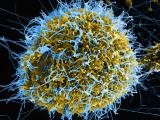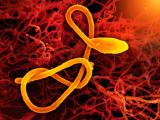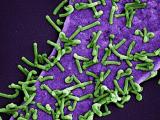The United Nations (UN) today announced that the Security Council will hold an emergency meeting on Sep 18 to discuss West Africa's Ebola outbreak, and the epidemic and its response will get attention tomorrow at the top levels of the US government.
The development should come as welcome news for global health and medical aid groups, who have been pressing for more urgent attention and action on an outbreak with cases increasing exponentially and disruptions that threaten three fragile West African nations. A handful of infectious disease experts have also urged the UN Security Council to take up the issue.
Meeting needed to unleash global resources
The United States requested the emergency meeting because of the "increasingly grim situation," according to a UN press release. US Ambassador Samantha Power said at a press briefing, "The trend lines in this crisis are grave, and without immediate international action we are facing the potential for a public health crisis that could claim lives on a scale far greater than current estimates and set the countries of West Africa back a generation."
Power added that it's time for the Security Council to talk about a coordinated international response and start directing collective resources to help curb the disease.
The UN also said it has partnered with the International Federation of Association Football (FIFA) to streamline the use of Antoinette Tubman Stadium in Monrovia to house two large Ebola treatment centers. The World Health Organization (WHO) has identified the field as the most suitable location, but local people feared the step damage the stadium, which was recently donated by FIFA to the Liberian Football Association. FIFA said it would pay for potential damages and consider using resources from its solidarity fund to support football associations in affected countries.
EVD has Washington attention
Tomorrow, members of Congress are slated to hear from federal health officials that are leading the nation's efforts, and President Barack Obama is scheduled to visit Centers for Disease Control and Prevention (CDC) headquarters in Atlanta, where he will be briefed about events.
At a Sep 12 media briefing, White House press secretary Josh Earnest said that during the President's visit to the CDC, he will also discuss the US response to the outbreak and thank scientists, doctors, and healthcare workers who are helping people affected by the disease at home and around the world.
Earnest also said the CDC will update Obama on the enterovirus D68 (EV-D68), a respiratory virus that has been confirmed as responsible for illness clusters and hospitalizations in children in several Midwestern states.
During his visit to the CDC, President Obama is expected to detail his plans to boost the nation's efforts to help West Africa battle the Ebola outbreak, the Wall Street Journal, citing unnamed sources, reported today. The plan could include sending more portable hospitals, medical staff, and supplies, and also training health workers in the outbreak countries.
The African media yesterday reprinted a letter from Liberian President Ellen Johnson-Sirleaf to Obama. She said Monrovia, the country's capital and one of the top disease hot spots, needs 1,500 EVD treatment beds and that 10 more treatment centers are needed in outlying counties. She said Liberia can supply only 100 beds and that Doctors without Borders can provide only 400 more, "leaving a very significant gap." Because of outbreak-related flight restrictions, she added, the number of airlines servicing the country has been reduced from 11 to 2.
Johnson-Sirleaf requested that the US government set up and operate at least one EVD treatment center in Monrovia, assist with restoring basic health services in at least 10 health facilities, and assist with maintaining an air bridge to bring supplies, food, and outbreak responders into the country. The letter was published yesterday on AllAfrica, an African news service.
Congress is currently considering Obama's $88 million request for the Ebola response, which is included in continuing resolutions to fund the government for 3 more months past the end of the fiscal year. The US House of Representatives has already introduced a bill that includes the amount the administration requested.
Also tomorrow, federal health officials will testify before a joint Senate committee hearing on the Ebola virus disease (EVD) threat and the response challenges. Health officials on the witness list include Beth Bell, MD, MPH, director of the CDC's National Center for Emerging and Zoonotic Diseases; Anthony Fauci, MD, director of the National Institute of Allergy and Infectious Diseases (NIAID), and Robin Robinson, PhD, director of the Biomedical Advanced Research and Development Authority (BARDA).
Two people who have worked in the outbreak countries are also scheduled to testify: Kent Brantly, MD, who survived an EVD infection he contracted while working in a Liberian treatment center for the missionary group Samaritan's Purse, and Ishmael Alfred Charles, program manager with the Healey International Relief Foundation in Sierra Leone's capital, Freetown.
In a separate development, officials at the top levels of the WHO and the US government are in discussions about options for stepping up the production of experimental Ebola drugs and vaccines, the Canadian Press reported today. An unnamed US government official said one plan is to roll out a version of ZMapp that can be made in other production systems that have higher capacity, according to the report. Currently, the very small supply of ZMapp—which has been used to treat a handful of infected health workers—has been exhausted.
Health worker death, exposures
In West Africa, another doctor in Sierra Leone has died from the disease, the fourth such fatality in a country where medical coverage is already stretched razor thin, the Associated Press (AP) reported today. The country's chief medical officer, Dr Brima Kargbo, told the AP that Olivet Buck died on Sep 13 after the WHO said it was unable to evacuate her to Germany. The WHO had said it could not meet the request, but would work to give Buck the best possible care in Sierra Leone, including experimental drugs, if possible.
Meanwhile, the Dutch foreign ministry said on Sep 13 that it is working to fly two Dutch doctors who were exposed to EVD while working in Sierra Leone back to the Netherlands, Agence France-Presse (AFP) reported today.
The two men are not symptomatic, but while working at a medical center in the western town of Yele had contact with three people who later died from EVD, according to the report. The clinic the doctors worked at mainly treated malaria patients, another disease that is widespread in Africa and has symptoms that initially resemble EVD.
CDC launches EVD training for West Africa volunteers
Health personnel have been one of the hardest-hit groups in the outbreak, and group such as the WHO and MSF have said one of the most urgent needs in the outbreak countries is more health workers to staff EVD treatment centers. On Sep 12 the WHO announced that Cuba had committed 165 health professionals to help in West Africa.
The US Agency for International Development (USAID) has put out a call for health workers in the United States to volunteer in West Africa and recently contributed $10 million to support the African Union's urgent deployment of trained staff to the outbreak zone.
In a related development, the CDC on Sep 11 announced a safety training course for healthcare workers who will being going to West Africa to assist with outbreak response. Designed for licensed health professionals, the training is aimed at providers who will deploy as part of a group, such as a nongovernmental organization or the federal government. The CDC emphasized that it will not deploy graduates of the course to West Africa.
The 3-day courses start on Oct 5 and will be held at a Federal Emergency Management Agency (FEMA) Center for Domestic Preparedness in Anniston, Ala., a 90-minute drive from Atlanta. The workshop will cover EVD transmission, epidemiology, and prevention, and will feature small group exercises and hands-on exercises on patient triage and working safely in an Ebola treatment unit.
See also:
Sep 15 UN press release
Sep 12 White House press briefing transcript
Sep 15 Wall Street Journal story
Senate joint committee hearing information
Sep 14 AllAfrica report
Sep 15 Canadian Press story
Sep 15 AP story
Sep 15 AFP story
Sep 11 CDC EVD safety training course information



















